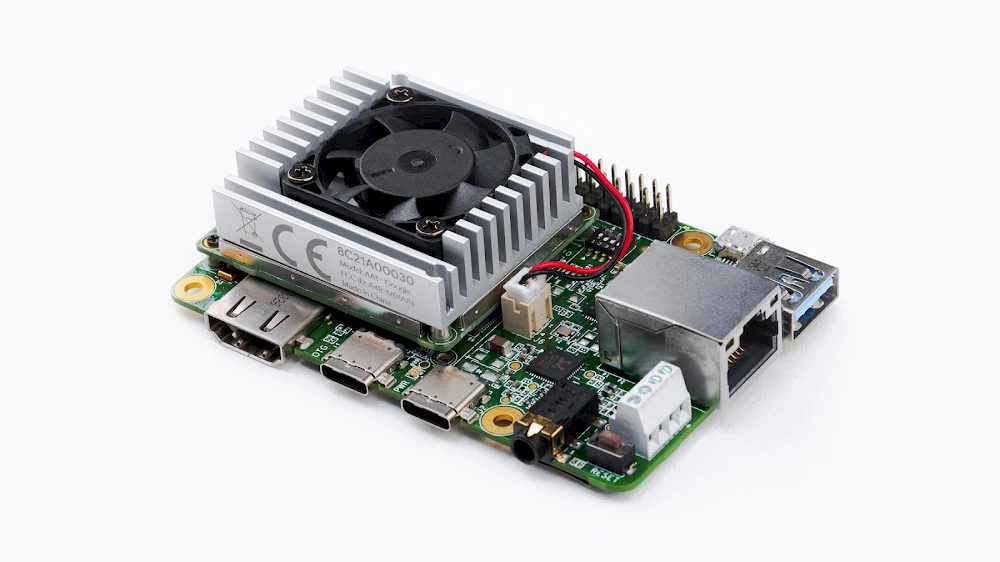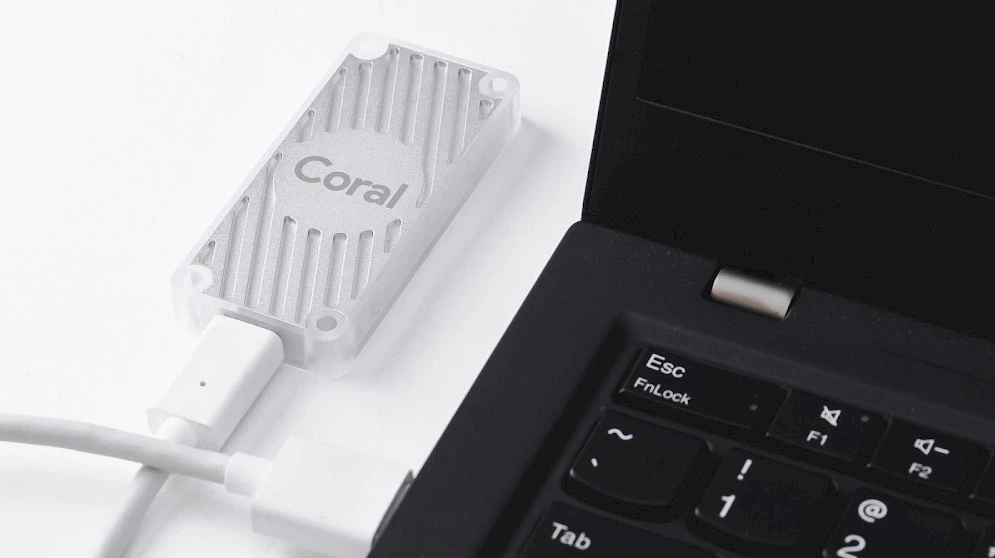Google Coral

Coral Dev Board. © Google.

Coral USB Accelerator. © Google.
Google has begun marketing its Coral-branded devices that are dedicated to developing artificial intelligence applications based on machine learning. Powered by the Google Edge TPU chip (Tensor Processing Unit), the first batch of devices delivers the Coral Dev Board and the Coral USB Accelerator.
The Dev Board is a single-board computer with dimensions similar to those of a Raspberry Pi 3 B, which carries a removable system-on-module (SOM) containing SOC, eMMC storage (8 GB), a chip that manages wireless communications, and the Edge TPU. It’s perfect for developing IoT devices and other embedded systems that demand fast on-device ML inferencing. In addition, Coral offers a 5 MB camera module (2582 × 1933 pixels), compatible with the Dev Board.
The USB Accelerator is a TPU Edge-enabled box that connects over USB 3.0. It allows for quick prototyping of local AI applications on Linux systems.
Models must be developed in TensorFlow Lite rather than in TensorFlow, and then compiled to run on the Edge TPU using a web compiler. Some precompiled models are also available. The Dev Board is US$ 150 and the USB Accelerator is US$ 75. They are available for order at Mouser.com, which indicates a lead time of 17 weeks for the card, whereas the USB Accelerator is in stock. The camera module is sold for US$ 25. Finally, another device is planned for later this year: a PCI-E board with the Edge TPU for Debian systems.

⇨ Hackster Blog, “Say ‘Hello’ to Google Coral.”
⇨ Circuit Breaker, “Google unveils new tools to bolster AI hardware development.”
